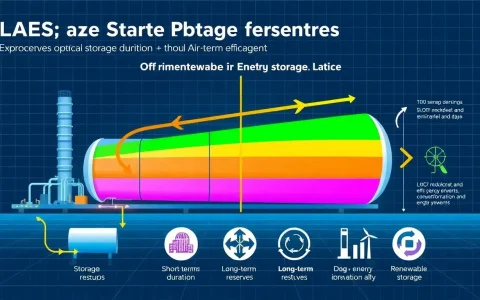
What knowledge is used in energy storage batteries
1. Understanding of Electrochemistry, 2. Insights into Material Science, 3. Battery Management Systems (BMS), 4. Life Cycle Assessment and Sustainability
The field of energy storage batteries relies on a variety of specialized knowledge to enhance performance and longevity. 1. Electrochemistry serves as the backbone, providing critical insights into how energy conversion occurs during charging and discharging. This knowledge is integral in developing new electroactive materials that optimize energy density and efficiency. 2. Material science contributes significantly to identifying suitable materials for electrodes and electrolytes, which can improve battery performance and safety. 3. Proficiency in battery management systems allows for monitoring and optimizing battery health, ensuring efficient operation and minimizing risks of failure. Lastly, 4. Life cycle assessment knowledge aids in evaluating environmental impacts, leading to advancements in sustainable practices in battery production and recycling.
1. UNDERSTANDING OF ELECTROCHEMISTRY
Electrochemistry stands at the core of battery technology, serving as the fundamental principle governing how batteries store and release energy. The intricate processes comprising redox reactions involve the transfer of electrons, creating a flow of electric current. Understanding the mechanics of oxidation and reduction reactions is vital for enhancing battery efficiency and longevity. Specific knowledge about electrochemical kinetics, thermodynamics, and mass transport mechanisms can lead to significant advancements in battery design.
Efficient energy storage is hinged upon optimizing the performance of both anodes and cathodes. By utilizing advanced materials and structures at the nanoscale, researchers are able to refine charge and discharge rates, thereby delivering enhanced performance. The exploration of lithium-ion (Li-ion) batteries reveals that the effectiveness of the electrolyte and electrode materials directly influences energy density and cycle life. As such, comprehensive knowledge in electrochemistry allows scientists and engineers to create batteries that can operate effectively across varying conditions and applications. In this regard, customization of electrolyte formulations and electrode architectures plays a critical role in boosting overall battery efficiency.
2. INSIGHTS INTO MATERIAL SCIENCE
The rapid progress in energy storage technology heavily depends on advances in material science. The selection of materials for electrodes, electrolytes, and separators greatly influences the functionality and safety of batteries. One of the key considerations is the specific capacity of materials, which determines how much energy can be stored. By acquiring detailed knowledge about different materials, such as lithium, cobalt, and nickel, researchers can innovate ways to enhance battery performance. The synthesis of novel compounds and composites can lead to materials that exhibit better conductivity, capacity, and stability.
Furthermore, the compatibility of materials in a battery system affects the rate of degradation and the long-term reliability of batteries. Understanding the interactions between different materials on a molecular level allows for the creation of stable and reliable battery systems. As battery lifespans and charge cycles become more critical concerns, the role of material science in developing robust and resilient components becomes paramount. Researchers are actively experimenting with alternatives to traditional materials, such as sodium-ion and solid-state battery technologies, which may pave the way for increased energy storage capabilities.
3. BATTERY MANAGEMENT SYSTEMS (BMS)
Battery management systems are essential for the efficient operation of energy storage batteries. Proficient knowledge of electronics and computer systems is crucial in developing BMS, which oversees various parameters such as voltage, current, and temperature within the battery pack. By monitoring these aspects, BMS can ensure that batteries operate within their safe limits, streamline charging cycles, and prolong the overall lifespan of the battery. This knowledge enables engineers to design intuitive control algorithms that can enhance charge and discharge efficiency while also preventing hazardous conditions.
Moreover, robust BMS not only enhance the safety of battery systems but also improve user experience. Advanced BMS can feature real-time diagnostics and alerts, providing users with essential data about battery health and performance. The integration of machine learning and artificial intelligence into BMS design represents a significant leap forward. These technologies enable predictive analytics, where the system learns from usage patterns and optimally adjusts performance to suit individual needs. By adopting such innovative approaches, the BMS remains an area ripe for exploration in energy storage technology.
4. LIFE CYCLE ASSESSMENT AND SUSTAINABILITY
As the world pivots towards renewable energy, understanding the life cycle assessment (LCA) of energy storage batteries is crucial. This holistic view examines the environmental impact of batteries from raw material extraction to end-of-life recycling. Knowledge of sustainable practices and the circular economy plays a vital role in this assessment. By evaluating every stage of a battery’s life cycle, stakeholders can identify areas for reduction of environmental footprints, thereby enhancing sustainability.
Increasing pressure to ensure that battery manufacturing is environmentally friendly necessitates innovations in recycling strategies and material sourcing. Proficient knowledge of waste management and resource recovery can lead to best practices in battery recycling, ensuring that valuable materials are not discarded. Additionally, public policy and regulatory standards are pushing manufacturers to design for longevity and recyclability, intersecting economics with environmental consciousness. By emphasizing sustainability through informed decision-making, the future of energy storage technology promises to be both efficient and environmentally viable.
FREQUENTLY ASKED QUESTIONS
WHAT TYPES OF BATTERIES EXIST FOR ENERGY STORAGE?
A variety of batteries exist, each with its distinct properties and applications. Lithium-ion batteries are the most common, known for their high energy density and efficiency. They are widely used in consumer electronics, electric vehicles, and renewable energy storage. Another common type is the lead-acid battery, which is less expensive but has lower energy density and shorter life cycles. Flow batteries, on the other hand, offer longer charge cycles and are ideal for large-scale energy storage, particularly in renewable applications. Additionally, emerging technologies such as solid-state batteries and sodium-ion batteries are being researched for their potential advantages, including enhanced safety and improved energy density.
Each battery technology presents trade-offs including cost, efficiency, life span, and environmental impact. Therefore, the choice of energy storage battery depends on the specific requirements of the application, ranging from grid energy storage to portable devices. Continued advancements in material science and engineering are expanding the options available, tailoring solutions to meet diverse energy storage needs.
HOW DOES TEMPERATURE AFFECT BATTERY PERFORMANCE?
Temperature has a significant influence on battery performance, affecting both efficiency and lifespan. At higher temperatures, batteries experience increased chemical activity, which can enhance performance. However, excessive heat may lead to accelerated degradation of materials, resulting in reduced cycle life. Conversely, lower temperatures typically lead to diminished electrochemical reactions, causing batteries to operate at reduced efficiency. For lithium-ion batteries, cold conditions can reduce capacity and prolong charging times due to increased resistance within the electrolyte.
Manufacturers often recommend optimal temperature ranges for specific battery types. Maintaining batteries within these ranges helps ensure reliability and longevity. High-quality battery management systems continuously monitor temperature and implement adaptive strategies, such as thermal controls, to mitigate these temperature-related issues. Addressing the impacts of operational temperatures on battery performance is critical in developing robust and durable energy storage systems.
WHAT ARE THE FUTURE TRENDS IN ENERGY STORAGE BATTERIES?
The energy storage battery landscape is evolving rapidly, with several key trends shaping its future. One significant development is the continuous advancement of solid-state batteries, which promise higher energy density and improved safety over traditional lithium-ion systems. These next-generation batteries utilize solid electrolytes that reduce the risk of leakage and thermal runaway. However, challenges surrounding manufacturing scalability and cost remain obstacles that need resolution.
Another noteworthy trend is the growing integration of artificial intelligence in battery management systems, enhancing predictive capabilities for overall battery health and performance optimization. The rise of renewable energy sources, such as wind and solar, also drives the demand for efficient large-scale storage solutions. As society increasingly relies on renewables, more efficient and sustainable energy storage technologies will become essential to mitigate energy intermittency challenges. Cybersecurity considerations are increasingly becoming paramount as the digital mechanisms in energy storage systems gain momentum. All these trends point toward a future rich with innovation and enhanced efficiency in energy storage solutions.
The extensive role of specialized knowledge in advancing energy storage battery technology cannot be overstated. This multifaceted domain requires proficiency in a variety of disciplines including electrochemistry, material science, battery management systems, and sustainability practices. By exploring these facets, stakeholders can create more efficient, reliable, and environmentally friendly battery systems. As global energy demands increase, the need for innovative energy storage solutions becomes increasingly pressing. In light of this, leveraging advanced scientific methodologies allows considerable improvements in how energy is stored and utilized. The current pursuit for enhanced battery technology is further fueled by the integration of artificial intelligence, cutting-edge material research, and robust lifecycle assessments that prioritize sustainability. By investing in further research and development in these areas, society can create a more sustainable energy future, aligning with global efforts to transition to cleaner energy alternatives. Recognizing and enhancing the knowledge spectrum surrounding energy storage batteries is essential for optimizing the role these technologies play in addressing contemporary energy challenges and paving the way for a more sustainable energy landscape.
Original article by NenPower, If reposted, please credit the source: https://nenpower.com/blog/what-knowledge-is-used-in-energy-storage-batteries/











